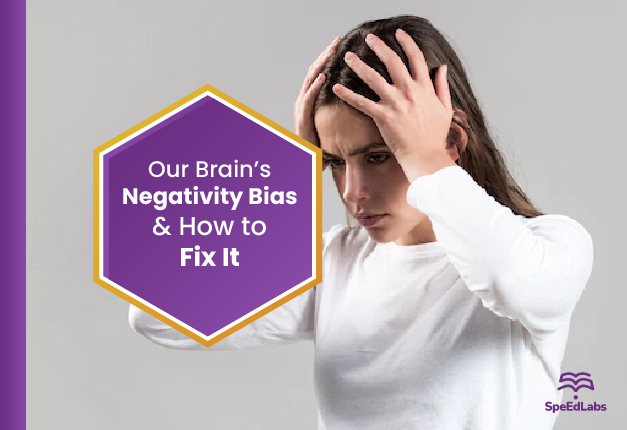Have you ever found yourself dwelling on a slight or obsessing over a blunder? Criticisms have a bigger impact than compliments, and bad news gets more attention than good news.
Because negative events have a greater impact on our brains than positive events, this is the case.
This is known as the negative bias (also known as the negativity bias) among psychologists, and it can have a significant impact on your behaviour, decisions, and even relationships.
What Is Negativity Bias and How Does It Affect You?
The negative bias refers to our proclivity for not only registering but also dwelling on negative stimuli.
This negativity bias, also known as positive-negative asymmetry, means that we feel the sting of a rebuke more powerfully than the joy of praise.
This psychological phenomenon explains why bad first impressions are so difficult to overcome and why past traumas can linger for so long. We are more likely to notice negative things in almost any interaction and remember them more vividly later.
As humans, we have a proclivity to:
- Traumatic events are remembered more vividly than positive ones
- Insults are remembered more vividly than compliments
- Negative stimuli cause you to react more strongly
- Negative thoughts are more frequent than positive ones
- Negative events elicit a stronger reaction than positive events
What the Study Says
People tend to focus more on the negative as they try to make sense of the world, according to research across a wide range of psychological events.
We tend to…
- Negative events will get more attention than positive events
- Negative outcomes and experiences can teach you a lot
- Make decisions more often based on negative data than positive data
The “bad things” are the ones that catch our attention, stick in our minds, and, in many cases, influence our decisions.
Motivation
According to psychological research, negative bias affects motivation to complete a task. When an incentive is framed as a way to gain something, people are less motivated than when the same incentive is framed as a way to avoid losing something.
This can influence your desire to achieve a goal. Rather than focusing on what you’ll gain if you keep working toward a goal, you’re more likely to think about what you’ll have to give up to get there.
Negative Bias and How to Overcome It
Negativity bias can harm your mental health, leading to:
- Dwell on gloomy ideas
- Your loved ones’ relationships will be harmed
- It is difficult to keep a positive attitude about life
Stop negatively talking to yourself.
Begin to notice the types of thoughts that run through your head. You might find yourself thinking things like “I shouldn’t have done that” after an event. Your negative self-talk shapes the way you think about yourself and others.
Reframe the Problem
The way you talk to yourself about events, experiences, and people has a big impact on how you interpret them. Look for ways to reframe events in a more positive light if you find yourself interpreting something negatively or only focusing on the negative aspects of the situation.
This does not imply ignoring the potential dangers of wearing rose-coloured glasses; rather, it entails refocusing so that positive events are given fair and equal weight.
Make New Patterns
Look for an uplifting activity to distract you from your negative thoughts when you find yourself ruminating. If you find yourself ruminating on an unpleasant event or outcome, for example, consciously try to divert your attention elsewhere and engage in a pleasurable activity.
Here are some more suggestions for distracting yourself from negative thoughts:
- Take a stroll around the neighbourhood
- Upbeat music should be played
- Reading a good book is a great way to pass the time
- Cherish the good times
Because positive experiences take longer to be remembered, it’s critical to pay extra attention to positive events. Negative experiences are more easily transferred and stored in your long-term memory, whereas happy experiences require more effort to achieve the same effect.
So, the next time something wonderful occurs, take a moment to appreciate it fully. Replay the scene in your mind several times, focusing on the pleasant feelings it evokes.
Key Takeaways
Although the negativity bias can have a strong influence on your behaviour, being aware of it allows you to take steps to adopt a more positive outlook. One of the most effective ways to combat negative bias is to take a more mindful approach that involves being aware of your tendency toward negativity and consciously elevating happier thoughts to the forefront of awareness.
Because dwelling on the negative can harm your mental health, taking steps to combat this bias can help you feel better.
Also published on Medium.
